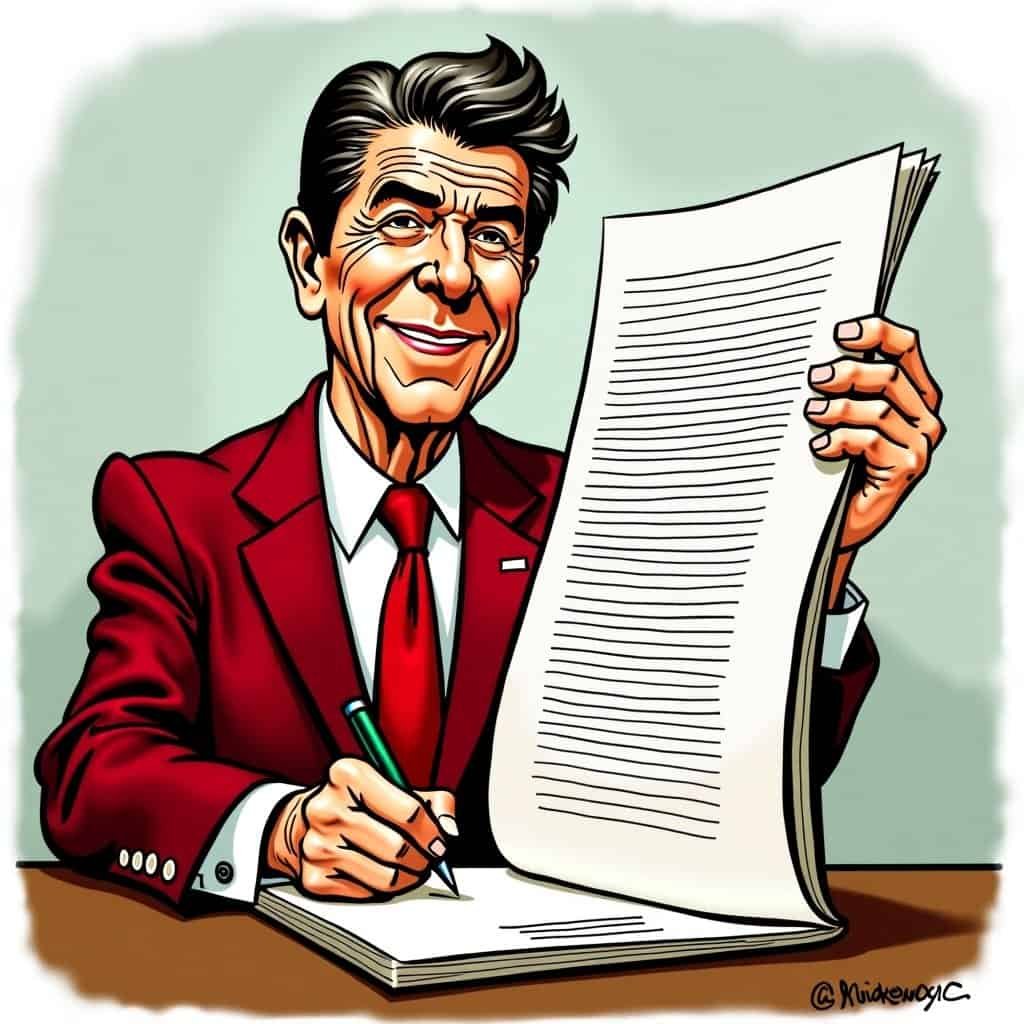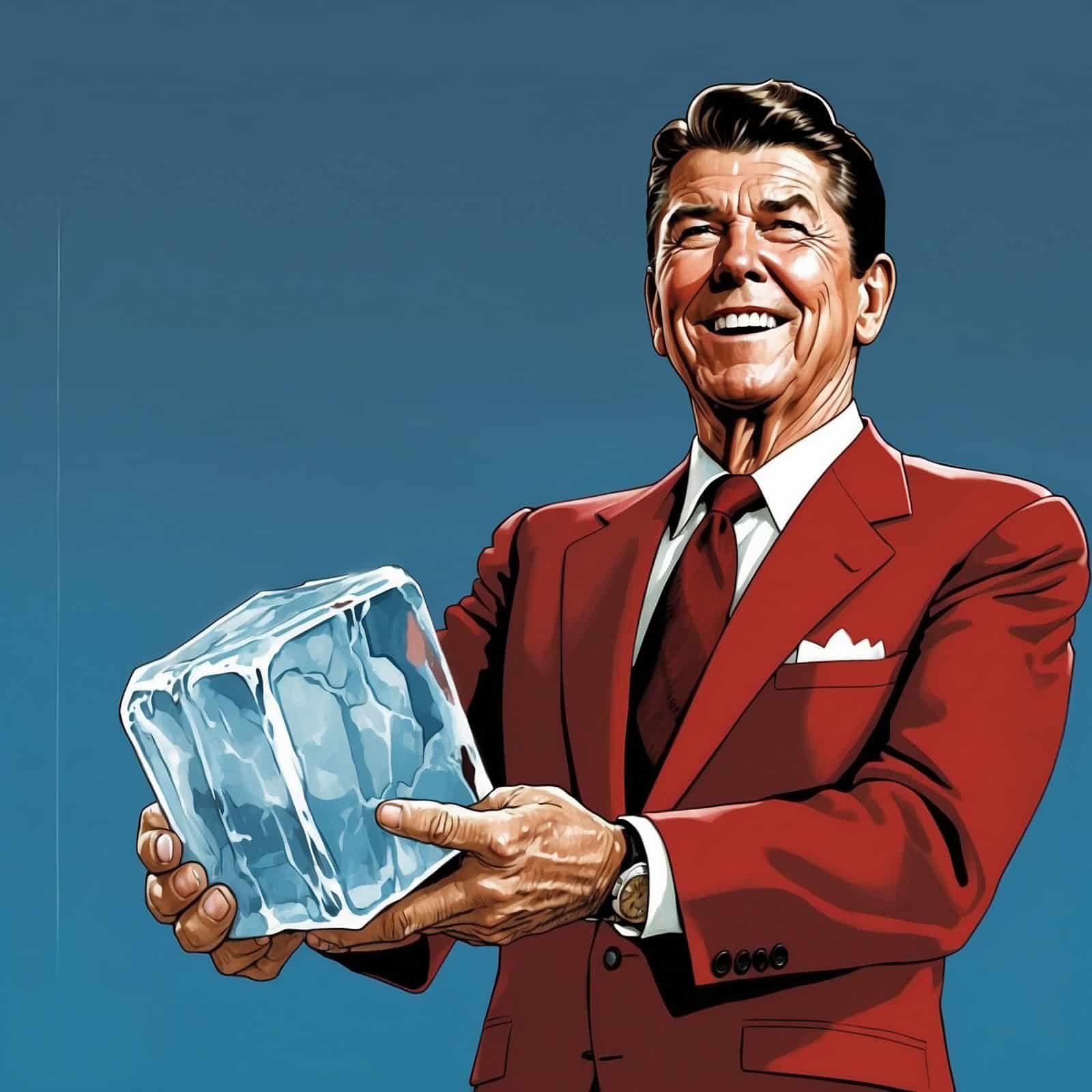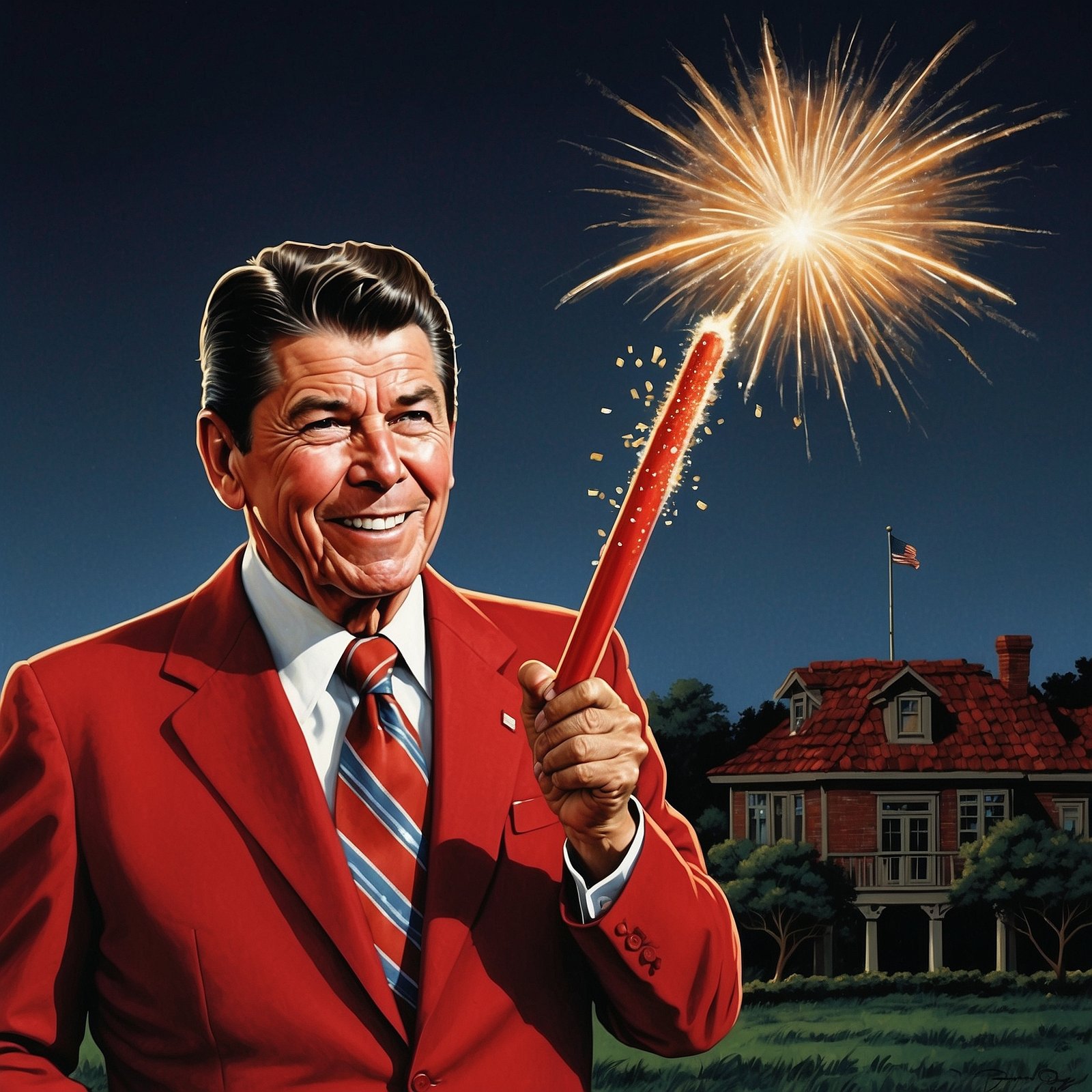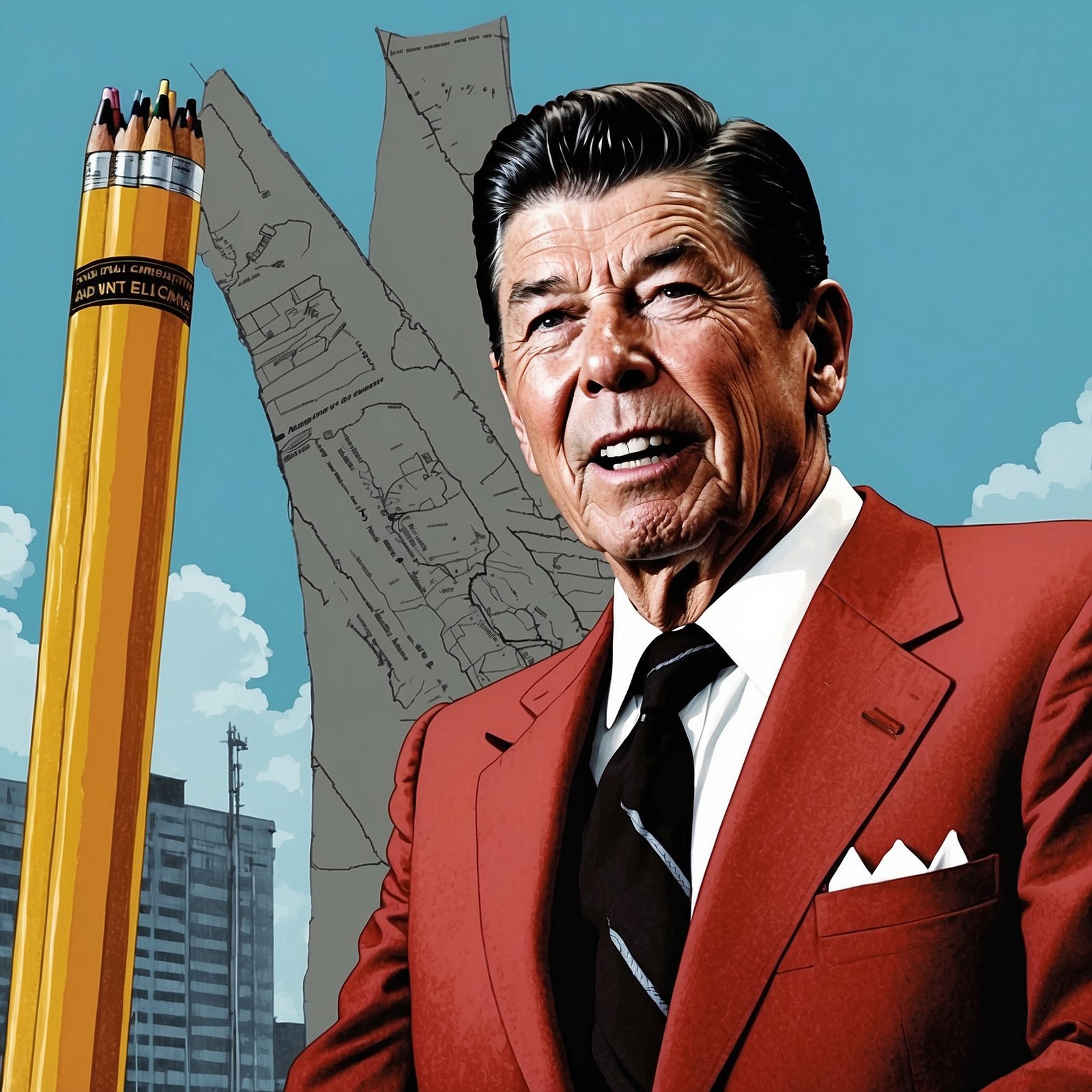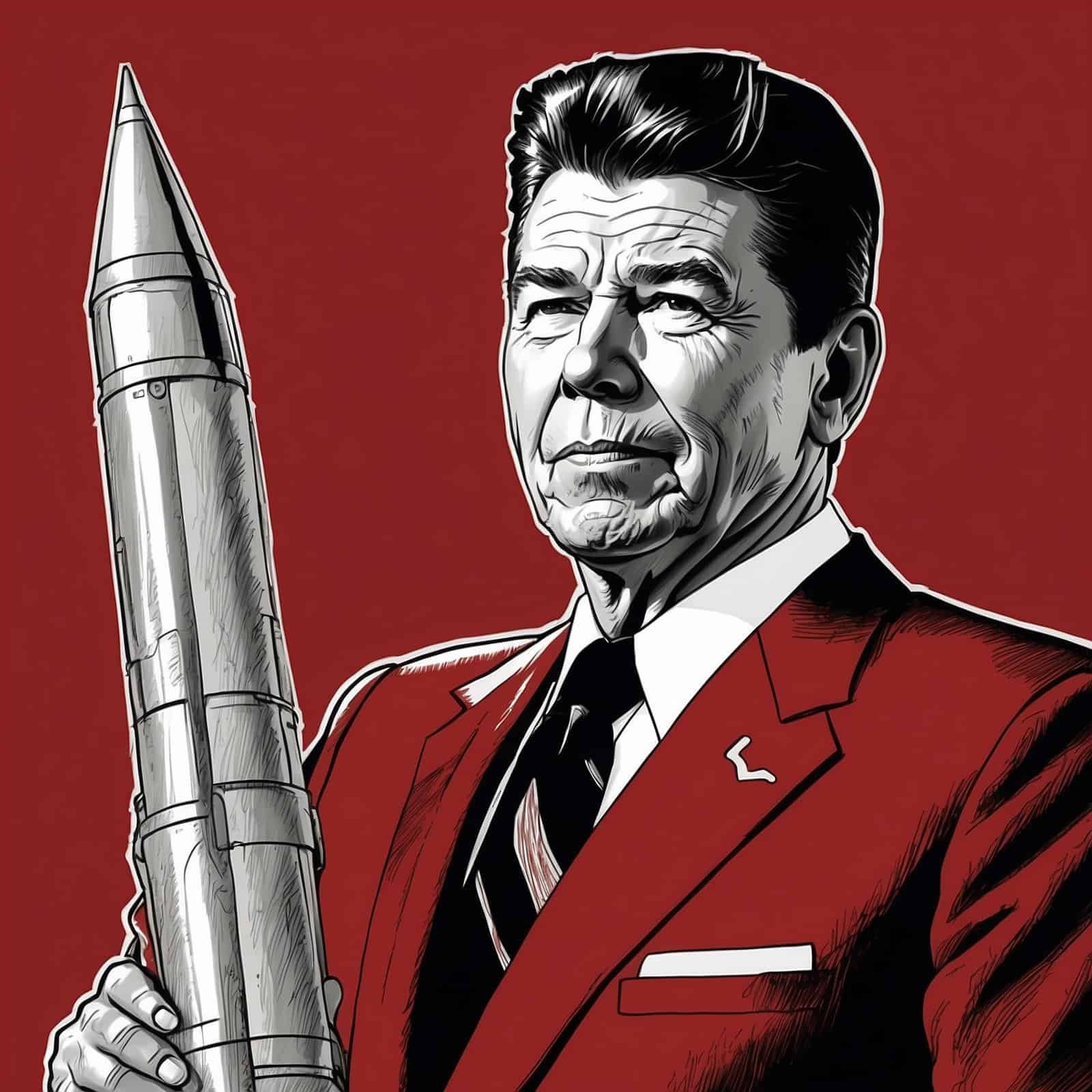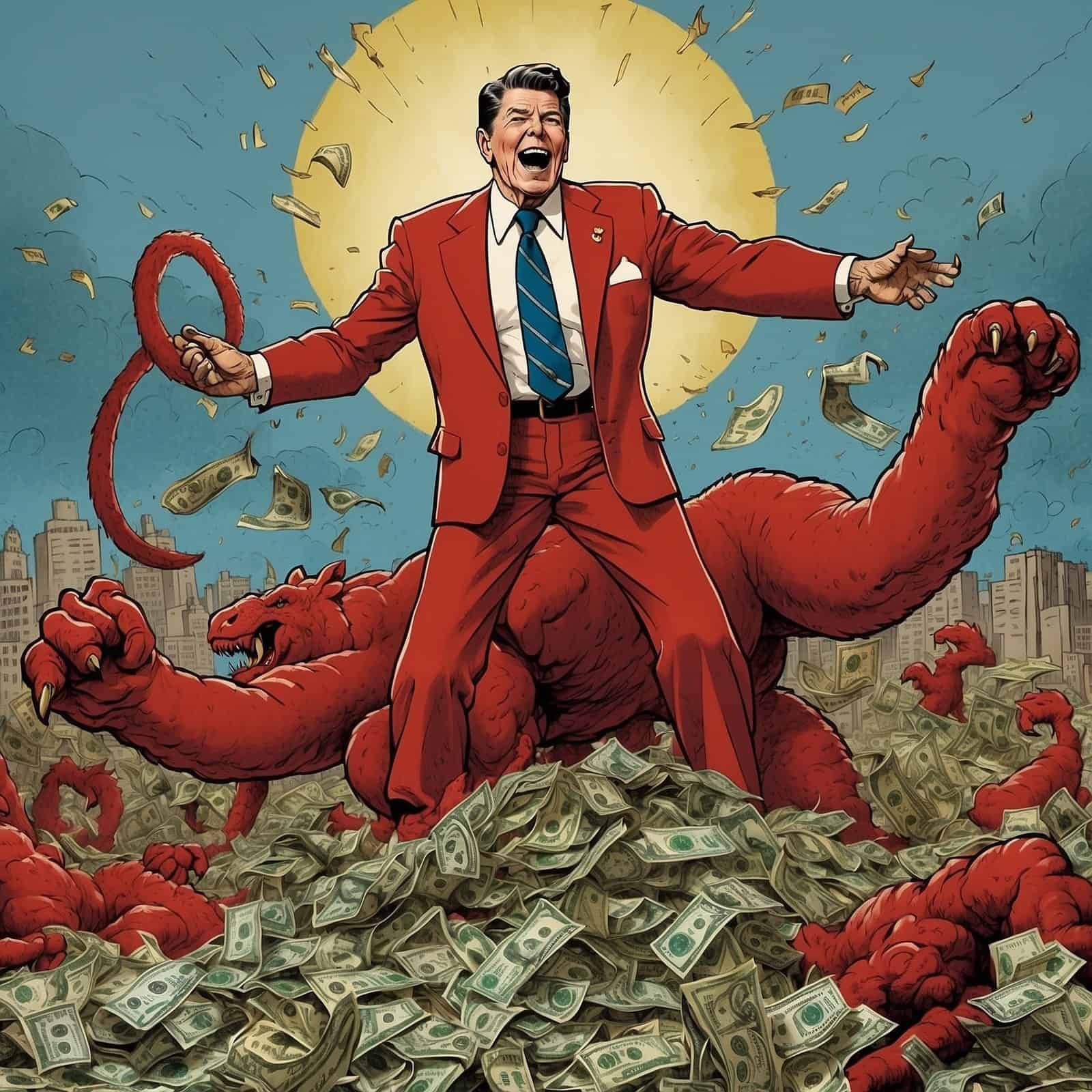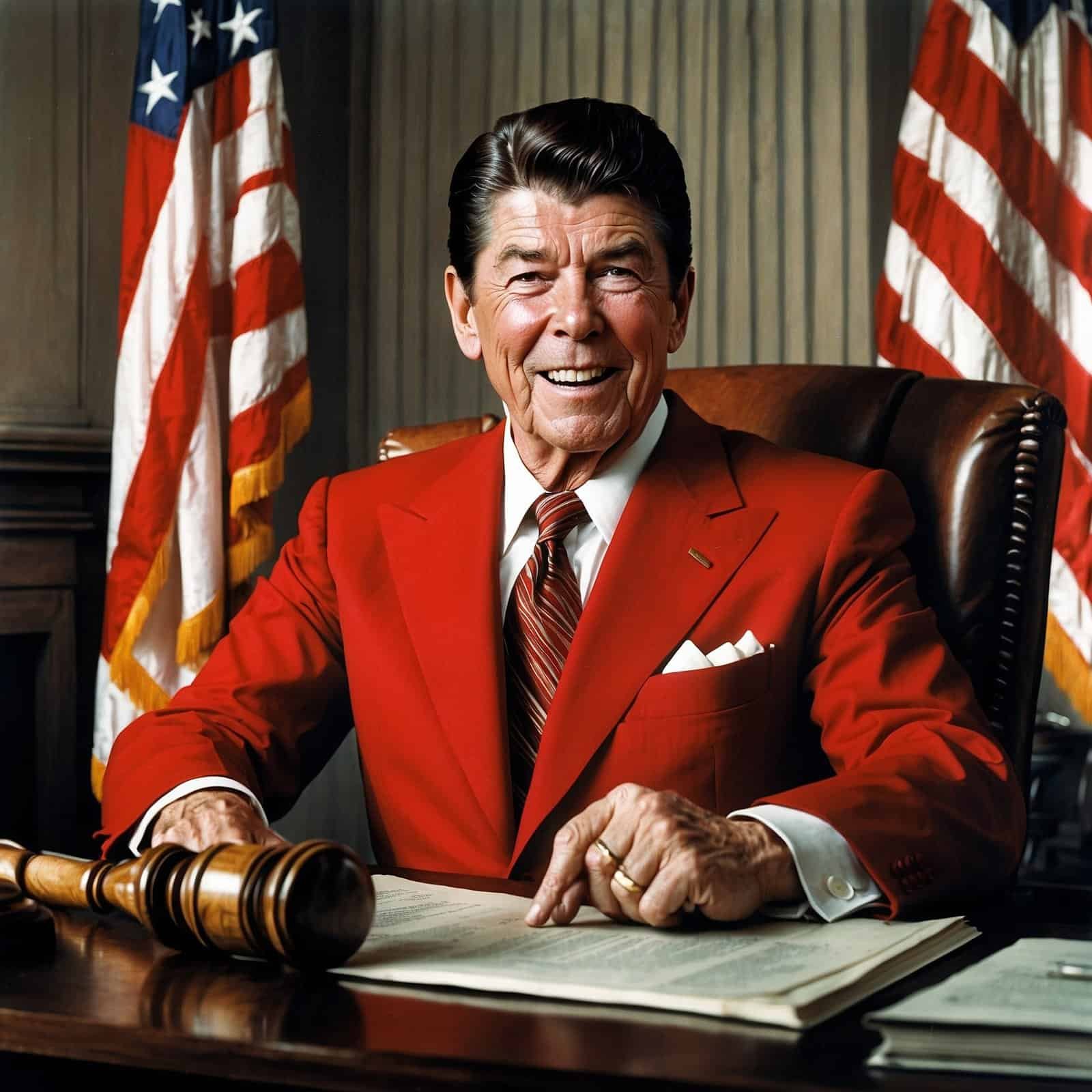In the arena of heated political discussions and hard-won triumphs, few subjects have stirred up as much controversy as free trade agreements. And when it comes to conservative icons, Ronald Reagan stands head and shoulders above the rest. Reagan, the man who seemed more at ease on stage with a teleprompter than a cat lounging in a sunbeam.
During his tenure, Reagan pushed the boundaries of conservative economic principles by championing the expansion of free trade agreements. He sailed through international waters like a seasoned captain who’d found the X marking the spot on his treasure map. His goal was straightforward: boost economic growth and build stronger alliances by creating opportunities for businesses to spread their wings without excessive government meddling.
Picture this—the 1980s, an era of big hair, synthesizers, and the lingering fear of Soviets hiding under every bed. In this setting, Reagan waltzed in like a conservative knight, armed with policies to turn the tide. His philosophy? Tear down those trade barriers and watch the free market work its magic, like a Las Vegas magic show but with fewer rabbits and more dollar signs.
Reagan’s Economic Philosophy
Conservatives cherish the idea that when companies and individuals keep more of their hard-earned money, they plow it back into the economy, sparking innovation and growth. It’s like planting seeds in rich soil; eventually, you’ll have a lush, green field. Reagan pushed for agreements that set the stage for an economic boom that even the blinding neon lights of the 80s couldn’t outshine.
Reagan’s Free Trade Strategy
- ✅ Lower trade barriers
- ✅ Reduce taxes on businesses
- ✅ Cut regulations
- ✅ Encourage entrepreneurship
- ✅ Foster international alliances
Consider this: liberal progressives, with their grand dreams of wealth redistribution, spend their time cooking up government programs like an overenthusiastic chef with too many spices. They tax businesses and the wealthy as if they’re on a caffeine-fueled frenzy, using these funds to create programs that look good on paper but squash the spirit of entrepreneurship.
Expanding free trade, on the other hand, was Reagan’s way of letting the market decide. Lower taxes and fewer regulations made businesses feel like they’d hit the jackpot, and they acted accordingly. This led to more jobs, higher wages, and a rising tide that lifted all boats—even the tiny rafts of the lower income brackets. With Reaganomics, the breadwinners were working overtime at the bakery.
Global Impact of Reagan’s Trade Policies
Reagan’s skill in negotiating trade agreements wasn’t just for domestic glory; it bolstered America’s position on the world stage. By engaging in trade partnerships, Reagan built alliances tighter than a drum. These were relationships that outlasted his presidency, proving that free trade wasn’t a passing fad but a pillar of conservative economic theory.
Benefits of Reagan’s Free Trade Policies
| Domestic | International |
|---|---|
| Increased job creation | Stronger global alliances |
| Higher wages | Improved diplomatic relations |
| Economic growth | Increased global competitiveness |
| Boost in innovation | Expanded market access |
Here’s the real kicker—while liberals are busy figuring out how to divide the pie into smaller, equal pieces, they miss the point that Reagan understood so well: make a bigger pie! His policies focused on creating wealth across the board, ensuring everyone could grab a slice bigger than they’d ever seen. The result? Prosperity that didn’t just trickle—it gushed across the nation, creating jobs and raising living standards like an express elevator to the penthouse.
So, the next time you hear debates swirling around the benefits of free trade, think of Reagan. Remember his vision of a thriving America where innovation wasn’t held back by excessive red tape and where businesses flourished because they were trusted to do what they do best: drive economic growth. With that kind of foresight, Reagan didn’t just expand free trade agreements; he expanded the very idea of what was possible under conservative leadership.
Let’s raise a glass to Ronald Reagan—a true virtuoso in the symphony of free trade. Just like a well-conducted orchestra, his policies hit all the right notes, resulting in a masterpiece of success that still echoes through conservative halls today.
